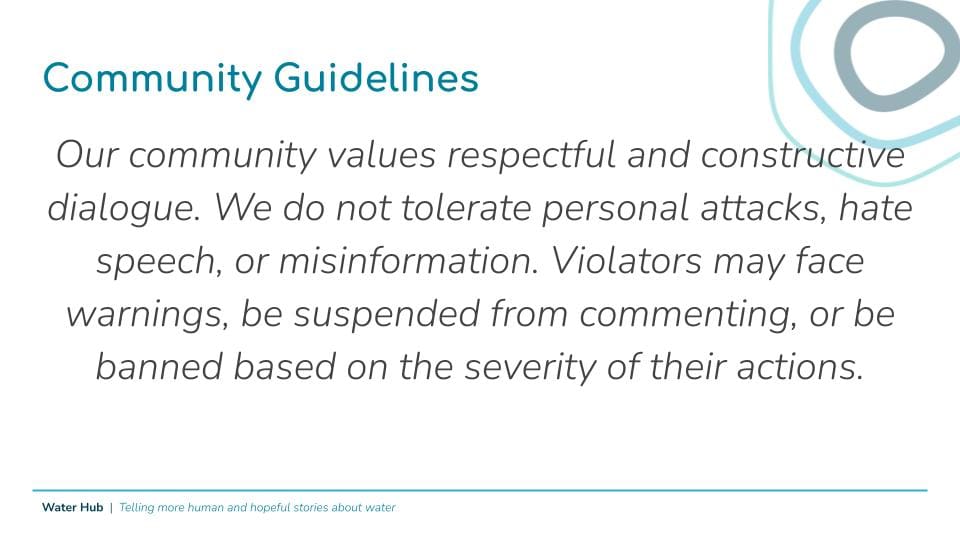With the rise of bots and decreased moderation, social media platforms have become increasingly contentious. To navigate this challenging environment, strategic community guidelines that promote productive conversations and minimize negative interactions are essential.
Watch our recent webinar for more practical strategies for meaningful online discourse!
Community guidelines
The deregulation of social media has led to a rise in hate speech and other negative behaviors online. This is troubling — we often need these platforms to engage directly with decision-makers and our audiences. Strategic community guidelines are essential to navigate this environment, protect your organization, and safeguard the mental health of your staff. Like a lifeboat you hope never to use, these guidelines are your first line of defense against online toxicity, providing clarity and support for both internal teams and external community members. Here’s a sample guideline:

Turing test for trolls
Ding! It’s a new notification — someone’s commented on your organization’s page. But is it real?
As spam accounts and bots proliferate on social media, distinguishing between genuine users and automated trolls becomes crucial. But how do you know whether the account engaging on your page is a bot or a person? Here are a few key indicators:
- No bio or photo: Lack of personal details may suggest the account is a bot.
- A lot of copy-paste: Repetitive content and high posting frequency are strong indicators of spam profiles.
- Only replies on hot topic issues: Bots often engage only with trending topics, unlike humans who discuss a wider range of experiences with nuance.
Real people engagement guide
So you’ve gone through the Turing Test, and you’ve determined that the new comments on your page are coming from real folks. How do you navigate the conversation?
People engage with organizations online for various reasons — some are emotionally invested in the organization’s work, others are driven by their morals and principles, and some seek factual information with genuine interest. However, there are also individuals who aim to disrupt or derail your online environment. Our real people engagement guide outlines the different types of individuals you may encounter online.
These include emotionally invested and receptive individuals, as well as those without emotional investment who are still receptive to your work. Conversely, there are emotionally invested individuals who are not receptive, as well as outright trolls. It’s important to recognize that trolls can also be real people, not just automated spam accounts!
Principles for managing socials
Managing the who’s who in your online community is just one piece to productive online spaces– the final piece is to apply our seven principles to cultivating social media engagements that affirm your values and actively shape your online community.
- Define engagement goals: Clarify your objectives before interacting with dissenting community members.
- Lead with empathy: Acknowledge emotions and demonstrate understanding during interactions.
- Connect through storytelling: Share personal stories to evoke empathy and foster community.
- Restate positions for visibility: Reinforce your beliefs and values to maintain visibility and clarity.
- Strategically engage in persuasion: Present your position with evidence and aim for constructive dialogue.
- Define a safe space: Promptly address inappropriate comments to maintain a respectful online environment.
- Embrace the block button: Use the block feature liberally to maintain a positive and safe space.
You can find our Digital Detox Guide in full in our Resources section!
What’s next?
To stay in the loop for other Water Hub training and resources, join our newsletter list. You can also follow us on X (Twitter), Threads, Instagram, LinkedIn, and YouTube.